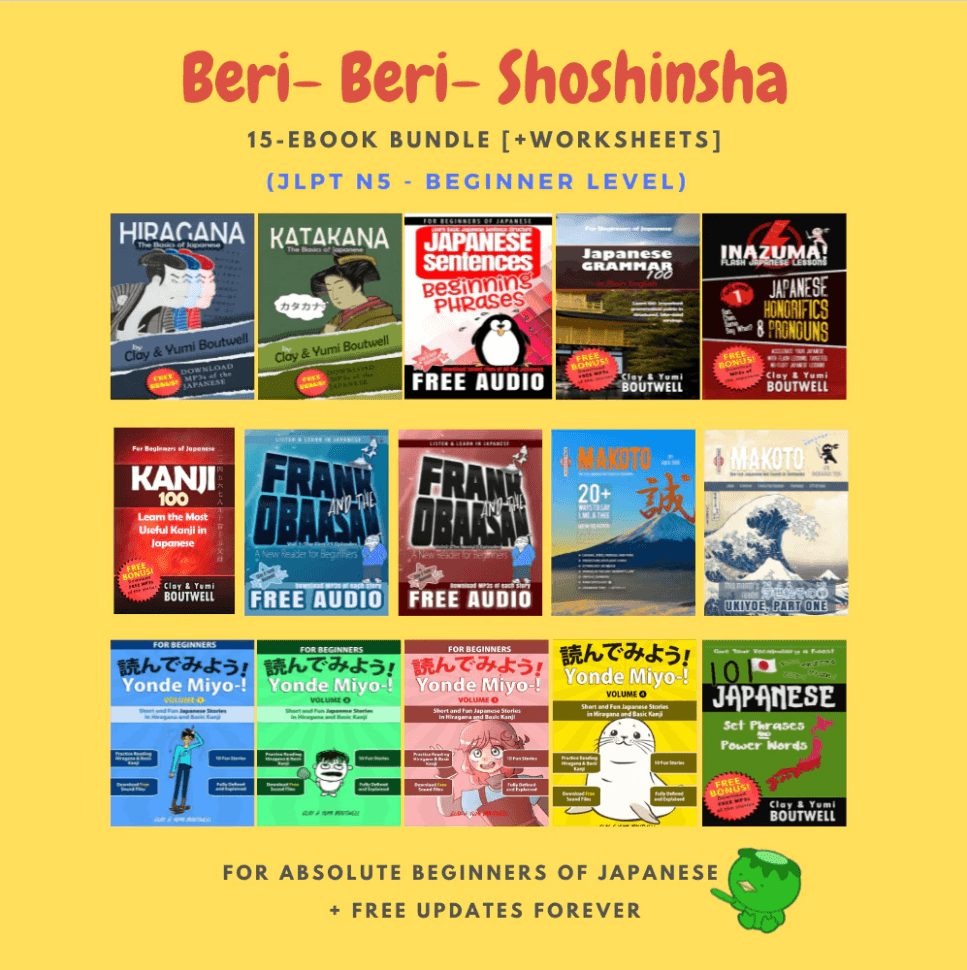Do you know One Punch Man?
Today, we'll go through a famous line from ワンパンマン. One Punch Man is so named because he is so strong he can take down any bad guy with a single punch.
In Japanese, he isn't ワンパンチマン but ワンパンマン (without the チ).
The name came from a play on the children's superhero series アンパンマン. One of アンパンマン's famous lines or abilities is his アンパンチ! This together with the アンパンマン name, inspired ワンパンマン.

Every superhero has a cool sounding line. Today, we'll look at ワンパンマン's:
趣味でヒーローをやっている者だ
Which means "I am a person who does hero work as a hobby."
Or a more natural English translation could be: "I'm just a guy who's a hero for fun."

Makoto+ Members, click here to download all the sound files and a printable PDF with a quiz just for this lesson. Practice makes perfect!
Let’s look a little closer:
Normal Speed
Slow Speed
趣味でヒーローをやっている者だ
Hobby | as | hero | (d.o.) | doing | person | am
I am a person who does hero work as a hobby.
Or… "I'm just a guy who's a hero for fun."
Vocabulary
Let’s break this down into two main sections for a clearer understanding.
SECTION 1
趣味でヒーローをやっている
As a hobby, doing hero (work)
SECTION 2
者だ
Am a person (who)
Let’s look at the Section 1 first.
SECTION 1
趣味でヒーローをやっている
Means and Method で + Continuous ている Form
趣味で | ヒーローを | やっている
(as a hobby) (hero) (am doing)
Vocabulary
Means and Method で
The で shows the means or method which, in this case, is “hobby.” Let’s look at a few other examples that follow this pattern.
仕事でプログラムを書く。
To write programs as a job.
- 仕事で: as a job [仕事 (job) + で (particle indicating means)]
- プログラムを書く: to write programs

アルバイトでウェイターをしている。
Working as a waiter in a part-time job.
- アルバイトで: as a part-time job [アルバイト (part-time job) + で (particle indicating means)]
- ウェイターをしている: working as a waiter
ボランティアで子供たちを教える。
To teach children as a volunteer.
- ボランティアで: as a volunteer [ボランティア (volunteer) + で (particle indicating means)]
- 子供たちを教える: to teach children
The -ing Continuous ている Form
The ている form indicates an ongoing action or state. Here are a few examples:
日本で英語を教えている。
I am teaching English in Japan.
- 日本で: in Japan
- 英語を: English (direct object)
- 教えている: teaching [教える (to teach) in the continuous form
彼女は本を読んでいる。
She is reading a book.
- 彼女は: she (topic marker)
- 本を: book (direct object)
- 読んでいる: reading [読む (to read) in the continuous form; note the sound changes to で]

毎朝ジョギングをしている。
I jog every morning.
- 毎朝: every morning
- ジョギングを: jogging (direct object)
- している: doing [する (to do) in the continuous form]
So, 趣味で explains why he’s doing the following action ヒーローをやっている (doing hero work) and all this describes the next part: the person 者だ.
SECTION 2
者だ
Noun Modified by a Clause
While 者 means “person” this format (〜者です) is used with humble language. He’s humbling himself even though his one punch is about to destroy the monster he’s talking to. However, he ends with だ rather than です. This would normally be used with peers or when talking to those with a lower social status.
So, there is a fun discord in his language. After all, being a hero isn’t exacly a typical hobby. A hero is selfless and powerful and helpful. But Saitama is just doing it for fun.
Nouns Modified by Clauses
This noun (者) is modified by the previous clause. All that came before tells us what kind of 者 (person) Saitama is.
Here are a few examples of a noun modified by a clause.
彼が書いた本は面白い。
The book he wrote is interesting.
- 彼が書いた本 the book he wrote
- は (topic marker)
- 面白い interesting

私が好きな食べ物は寿司です。
The food I like is sushi.
- 私が好きな食べ物 I like; food
- は (topic marker)
- 寿司 sushi
- です (polite copula)

昨日見た映画は楽しかった。
The movie I saw yesterday was fun.
- 昨日見た映画 yesterday; watched; movie
- は (topic marker)
- 楽しかった was enjoyable
Wrapping Things Up
趣味で | ヒーローを | やっている | 者だ
(as a hobby) (hero) (am doing) (person who is)
- 趣味で as a hobby
- ヒーローを hero (as a direct object of the “doing” verb)
- やっている doing [this could also be する]
- 者だ am a person (who)
趣味で explains why he’s doing the following action ヒーローをやっている (doing hero work) and all this describes the person 者だ. So, the clause 趣味でヒーローをやっている modifies the noun 者, providing a description of what kind of person he is.
Want more? Makoto+ members (Samurai and Shogun) can download a printable PDF of this lesson with all the sound files and bonus questions for comprehension. Click here if you are a member. Not yet a member? No problem! Click here to learn more. Become a member today and download this and hundreds of other TheJapanesePage.com bonus content items instantly.







Thank you Clay and Yumi!
Thank you!